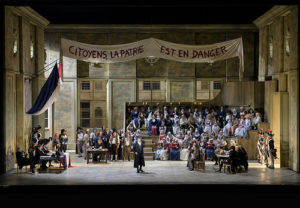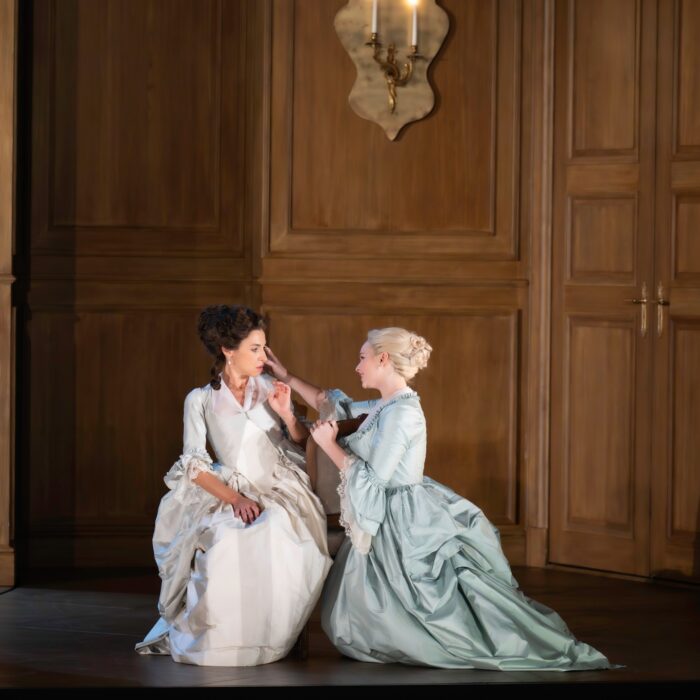
Andrea Chénier & Opera’s Greatest Patriotic Revolutionaries
By David SalazarIt is the month of revolutions with a number of major countries acquiring their respective independence in the month of July. Just to list some – the United States, France, Algeria, Colombia, Argentina, Belgium, Canada, Peru, Slovakia, Rwanda, Somalia, and Venezuela. All of these nations and many more claim their independence day during this month.
Independence didn’t come for free for many countries but through struggle and firm leadership from great revolutionary. Here is a look at some of opera’s great patriotic figures that turn into great revolutionaries.
Andrea Chénier and Carlo Gérard (Andrea Chénier)
You can’t really look at Giordano’s famed opera and ignore the two central male characters at the heart of the drama. The opera takes place during the world’s most famous moment of revolution, the French Revolution, with Gérard taking sides with the lower classes. Chénier himself is also against the aristocracy’s abuses, but he finds himself an enemy of the state that ultimately dies. Meanwhile Gérard, despite his leadership role comes to regret his role in committing more atrocities in the name of an oppressive government.
Andrei Bolkonsky (War and Peace)
You could create a laundry list of the revolutionaries in this opera, but Andrei is the central figure who winds up dead in the battle to save his country from the clutches of the Napoleonic empire. We see him in battle during the opera’s second half, leading his own regiment into battle at the risk of his own life.
Florestan and Leonore (Fidelio)
While the conflict might not be quite as epic as that of those other works mentioned, the famed couple do their own fight against the villainous Pizarro who has imprisoned many innocents under his tyrannical rule. Leonore is the true heroine of the piece, freeing her husband, and by extension the other unjustly imprisoned men, but it is Florestan’s own zealous nature that leads to his creating enemies for himself.
William Tell (Guillaume Tell)
One might be included to add Arnold here as well, but the title character is the man who risks all, even his own child’s life, to free his country from the tyrannical rule of Gesler. It is Tell who defies the villain and winds up killing him in the opera’s climax, thus freeing the Swiss people.
Enée (Les Troyens)
While mythological in his status, there is no denying that Enée leads an entire people to the promised land in search of a new home after losing their own in the Trojan War. He sacrifices the love of his life to fulfill the destiny of his people, putting his country first.
Rodrigo (Don Carlo)
You could literally go so many places with Verdi, listing off characters from practically anyone of his works (“Il Trovatore,” “I Vespri Siciliani,” “La Battaglia del Legnano,” “Simon Boccanegra,” “Un Ballo in Maschera,” “Otello,” “Aida,,” etc.). But no other character in Verdi’s opera’s matches the patriotic and revolutionary fervor of Posa. He seeks out the freedom of Flanders at any cost, pushing his best friend Don Carlo to fight for their freedom. He appeals his case to the King directly and when all seems lost, he opts for becoming the sacrificial lamb so that Carlo can continue in his mission of freeing Flanders. He ultimately fails, but his unerring determination for freedom is more potent than in, perhaps, any character in all of opera.
Gandhi (Satyagraha)
One might simply state that Phillip Glass’ famous opera is itself one massive examination on revolutionaries through the ages, contemplating the way that different historical figures have moved masses to change. Of course, the central figure is one of history’s greatest heroes, Gandhi himself.
Did we miss one of your favorite operatic revolutionaries or patriots? Let us know in the comments below!
Categories
Special Features

